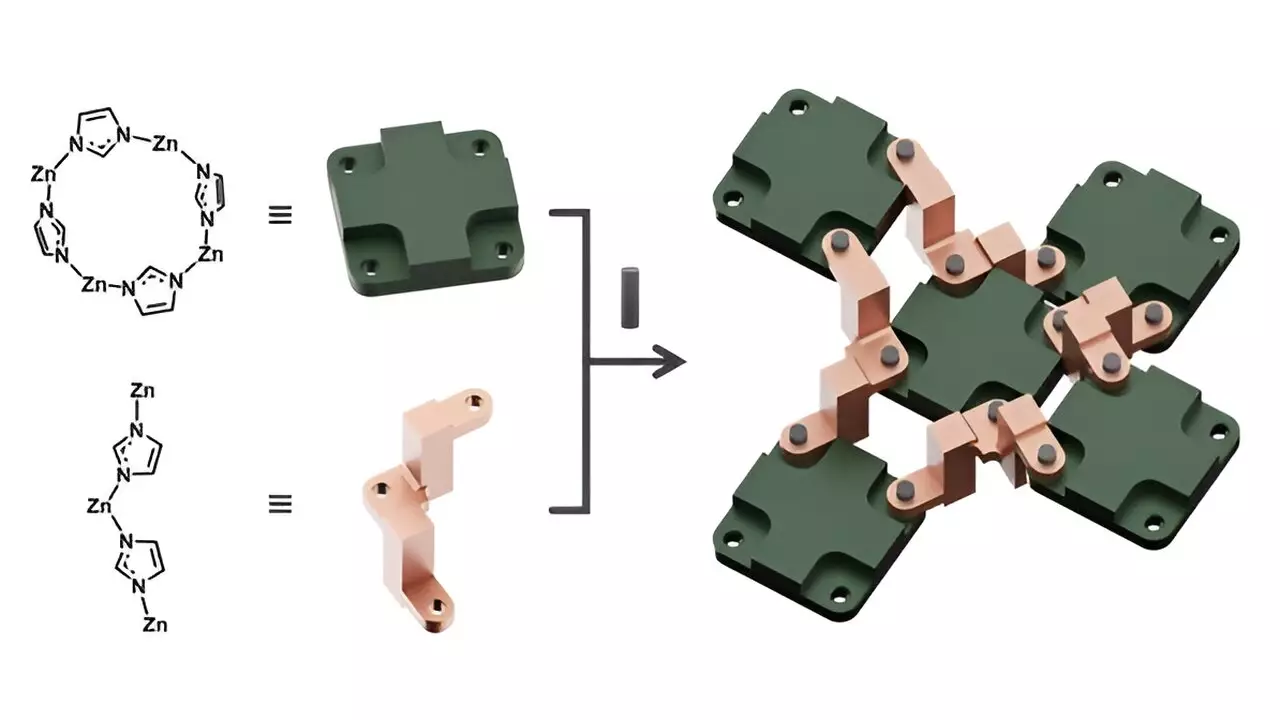As we navigate through an era dominated by rapid technological advancements, the importance of precision and functionality in nanoscale devices cannot be overstated. This is where the groundbreaking work spearheaded by a team at Ulsan National Institute of Science and Technology (UNIST) comes into play, revealing the vast potential of molecular machines in transforming industries. These are not just ordinary components; they are intricate molecular structures capable of performing mechanical movements akin to those found in traditional machinery, albeit on a much smaller scale.
Breaking Down Challenges in Molecular Control
One of the most significant hurdles in this field has been the mastery of mechanical control within solid-state molecular frameworks. The conventional wisdom suggested that linking machine-like behavior with mechanical properties in metal-organic frameworks (MOFs) was not feasible. However, the research team, led by Professor Wonyoung Choe, has shattered these notions, demonstrating that complex linkages can indeed be integrated into these frameworks. Their research reveals a novel method for achieving precise control over nanoscale movements through the use of zeolitic imidazolate frameworks (ZIFs), representing a substantial leap forward in nanotechnology.
The Mechanics Behind ZIF Innovation
At the heart of this study lies the inventive use of ZIFs, which are crafted to emulate the functionality of mechanical systems through a slider-crank linkage mechanism. This design allows for the translation of rotational motion into linear motion, an essential feature for developing responsive materials. The research highlights that by embedding dynamic components within these frameworks, scientists can manipulate mechanical actions with unparalleled accuracy. Through single-crystal X-ray diffraction techniques, the team confirmed that these structures not only resemble mechanical systems but also operate with remarkable elasticity and flexibility.
Applications and Future Prospects
With these breakthroughs, the field is on the cusp of innovative applications that could redefine data storage, among other uses. The flexibility demonstrated by these molecular machines suggests a capacity for adapting to various functionalities depending on their requirements. Professor Choe aptly points out that this capability of molecular machines to exhibit specific mechanical properties could be the key to revolutionizing material science as we know it. The prospect of creating customized nanomaterials with unique behaviors tailored to meet particular needs excites not only scientists but also industries reliant on advanced technology.
A Paradigm Shift in Nanotechnology
In a world where data storage and processing speed are paramount, the research at UNIST highlights a promising pathway for the future. By shifting the focus from purely theoretical frameworks to practical, controllable molecular devices, we are witnessing a paradigm shift in nanotechnology. This endeavor demonstrates how integrating machine-like movements at the molecular level opens doors to previously unimagined materials and innovations. The profound implications of these discoveries extend beyond academic walls, promising practical solutions to some of the most pressing technological challenges we face today.

